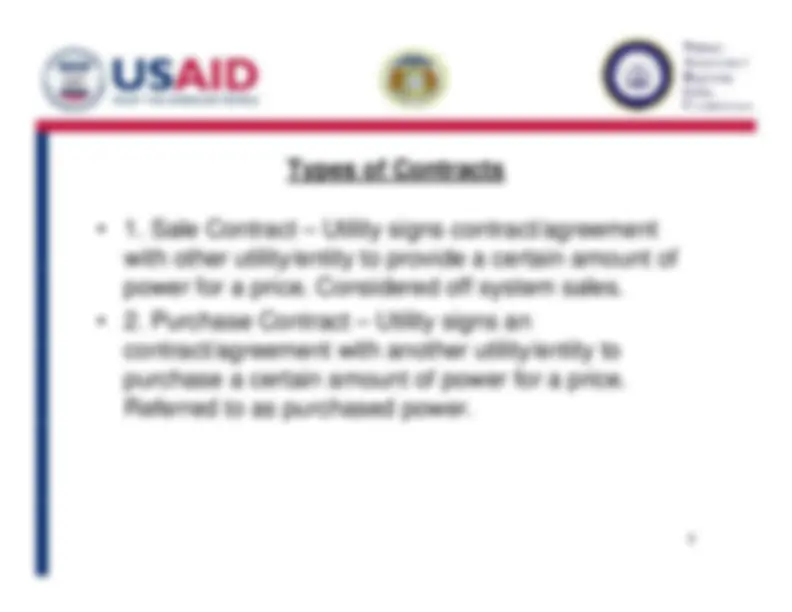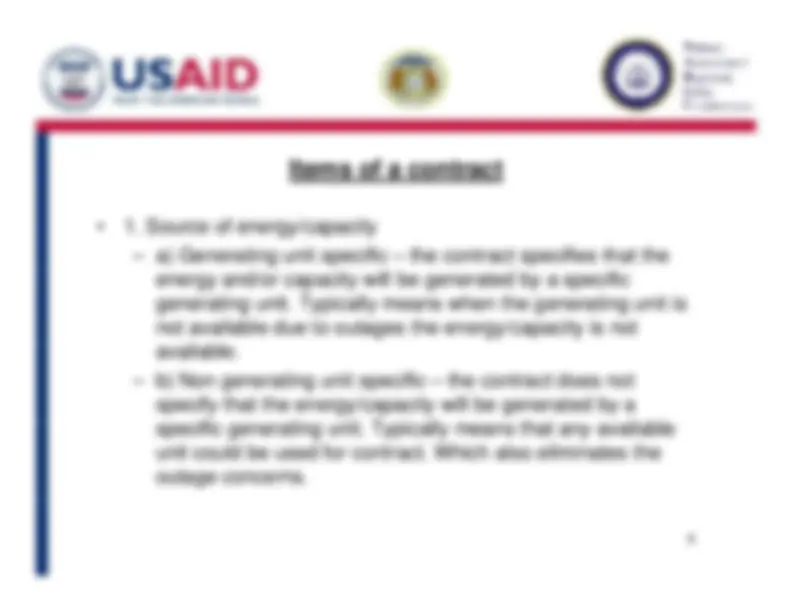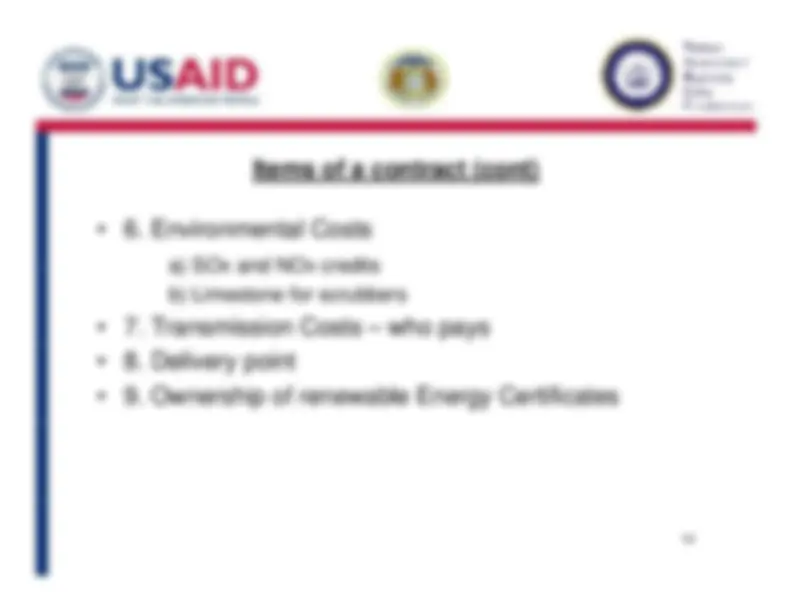











Study with the several resources on Docsity

Earn points by helping other students or get them with a premium plan


Prepare for your exams
Study with the several resources on Docsity

Earn points to download
Earn points by helping other students or get them with a premium plan
Community
Ask the community for help and clear up your study doubts
Discover the best universities in your country according to Docsity users
Free resources
Download our free guides on studying techniques, anxiety management strategies, and thesis advice from Docsity tutors
An overview of bilateral contracts for power, explaining the concept, definitions, types, and items involved. It covers power and capacity, heat rate, operating and maintenance costs, market price, generating units and plants, and various types of contracts such as sale, purchase, energy, and capacity contracts. It also discusses items like source of energy/capacity, energy/capacity amount, time period of the contract, energy cost determination, capacity cost determination, environmental costs, transmission costs, and delivery point.
Typology: Lecture notes
1 / 15

This page cannot be seen from the preview
Don't miss anything!










November 5, 2012
David Elliott
,
Basically it is a written agreement between two parties in whicheach party promises a performance. In other words, one party
t^
id
t^
th
th
t^
f^
t Th
agrees to provide power to the other party for a payment. Thegeneral characteristics of these contracts include price, timelimits, and defining the two parties.
ti^
i^
ll^
t b
i^
l T
i^
i
parties. Typically set by Regional TransmissionOperator/Independent System Operator such as SPP, MidwestISO, PJM.8 G
ti^
it^
B il
/t^
bi
b^
ti^
t^
bi
i d
l d
l t
f^
ti^
it
include several types of generating units.
-^
-^
it^
t^
f t
ti^
t^
t^
ith
t^
it
capacity as part of transaction. A contract without capacity, mayresult in energy not being available at all times.
-^
energy and/or capacity will be generated by a specificgenerating unit. Typically means when the generating unit isnot available due to outages the energy/capacity is not
il bl available.
specify that the energy/capacity will be generated by a
ifi
ti^
it T
i^
ll^
th t
il bl
specific generating unit. Typically means that any availableunit could be used for contract. Which also eliminates theoutage concerns.
d) Variable amount based on output
hydro, wind, solar
y^
y
contract such as costcontract, such as cost.
a) Fixed rate per kW
($/kW-month) x months x kW
b) Typically paid regardless of amount of energy taken.
-^
c) Capacity costs may be determined by the level of energyc) Capacity costs may be determined by the level of energycosts. Higher capacity costs may result in lower energycosts, or the opposite may occur.
-^
a) SOx and NOx creditsa) SOx and NOx creditsb) Limestone for scrubbers
-^
-^
-^